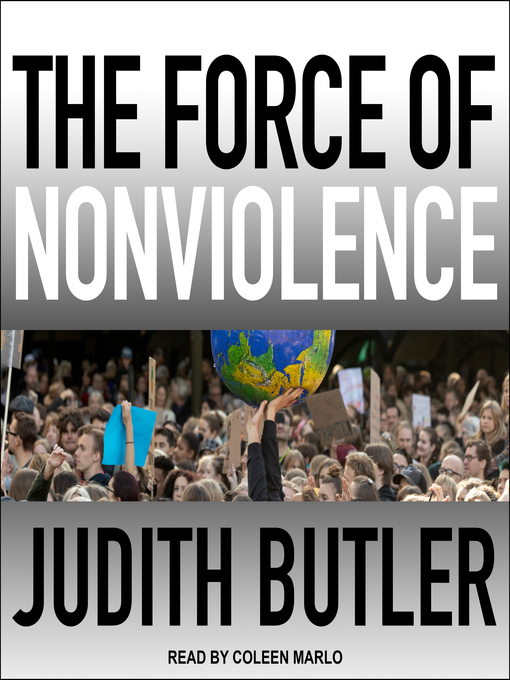Considering nonviolence as an ethical problem within a political philosophy requires a critique of individualism as well as an understanding of the psychosocial dimensions of violence. Butler draws upon Foucault, Fanon, Freud, and Benjamin to consider how the interdiction against violence fails to include lives regarded as ungrievable. By considering how "racial phantasms" inform justifications of state and administrative violence, Butler tracks how violence is often attributed to those who are most severely exposed to its lethal effects.
-
Creators
-
Publisher
-
Release date
February 4, 2020 -
Formats
-
OverDrive Listen audiobook
- ISBN: 9781705200476
- File size: 168742 KB
- Duration: 05:51:32
-
-
Languages
- English
-
Reviews
-
Publisher's Weekly
December 23, 2019
UC Berkeley philosopher and gender theorist Butler (Notes Toward a Performative Theory of Assembly) explores the meaning and ethics of nonviolence and its relationship to systemic racism and other repressive social structures in this scholarly yet boldly articulated essay collection. In contrast to prevailing associations of nonviolence with calmness and passivity, Butler redefines it as an “aggressive” and “sustained” form of resistance to social inequality. She reveals how racism, xenophobia, homophobia, and misogyny render certain lives “grievable” while others are deemed unworthy of grief, and applies that theoretical framework to discussions of the Black Lives Matter movement, various refugee crises, and violence against cisgender and trans women in Latin America. A piece on Freud’s development of the concept of the “death drive” (Thanatos) in the aftermath of WWI veers somewhat from Butler’s core theses, but intriguingly describes how “aggression and hatred” might be channeled to oppose nationalism and “war-mongering authority.” Butler’s academic prose and close readings of Foucault, Frantz Fanon, and other theorists may be difficult for general readers to follow, but her avowal of “global interdependency” as a positive force for equality resonates, as does her discussion of the ways in which state powers twist the definition of “violence” to stifle protest. Political activists with a background in philosophy will appreciate Butler’s insights.
-
Formats
- OverDrive Listen audiobook
subjects
Languages
- English
Loading
Why is availability limited?
×Availability can change throughout the month based on the library's budget. You can still place a hold on the title, and your hold will be automatically filled as soon as the title is available again.
The Kindle Book format for this title is not supported on:
×Read-along ebook
×The OverDrive Read format of this ebook has professional narration that plays while you read in your browser. Learn more here.

